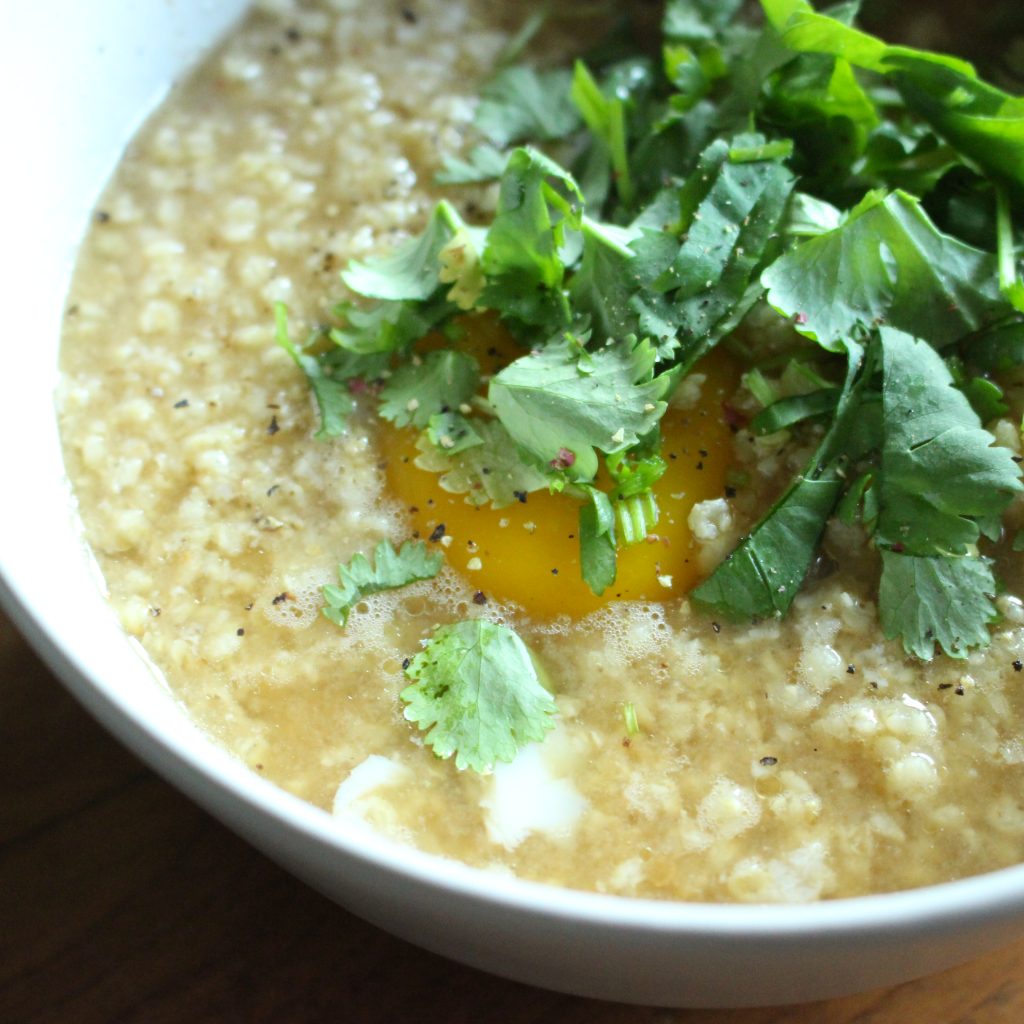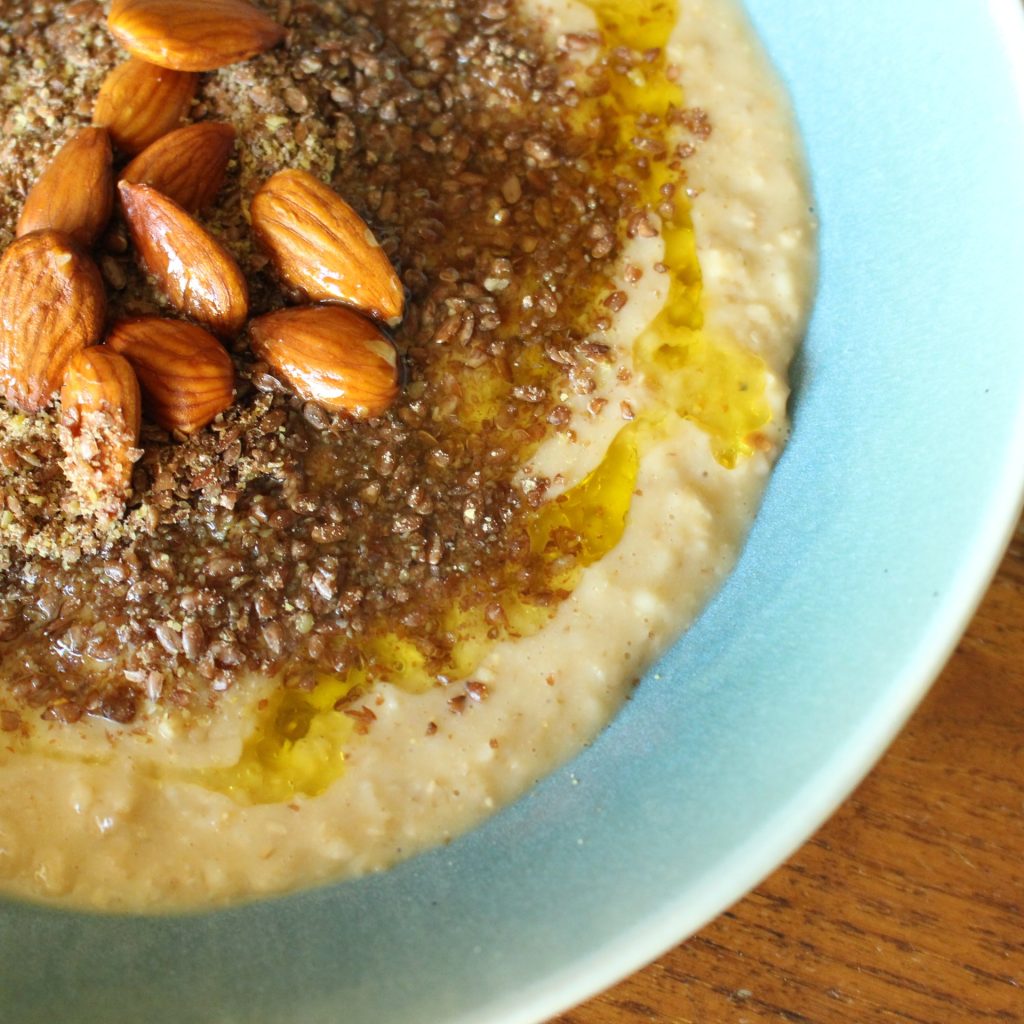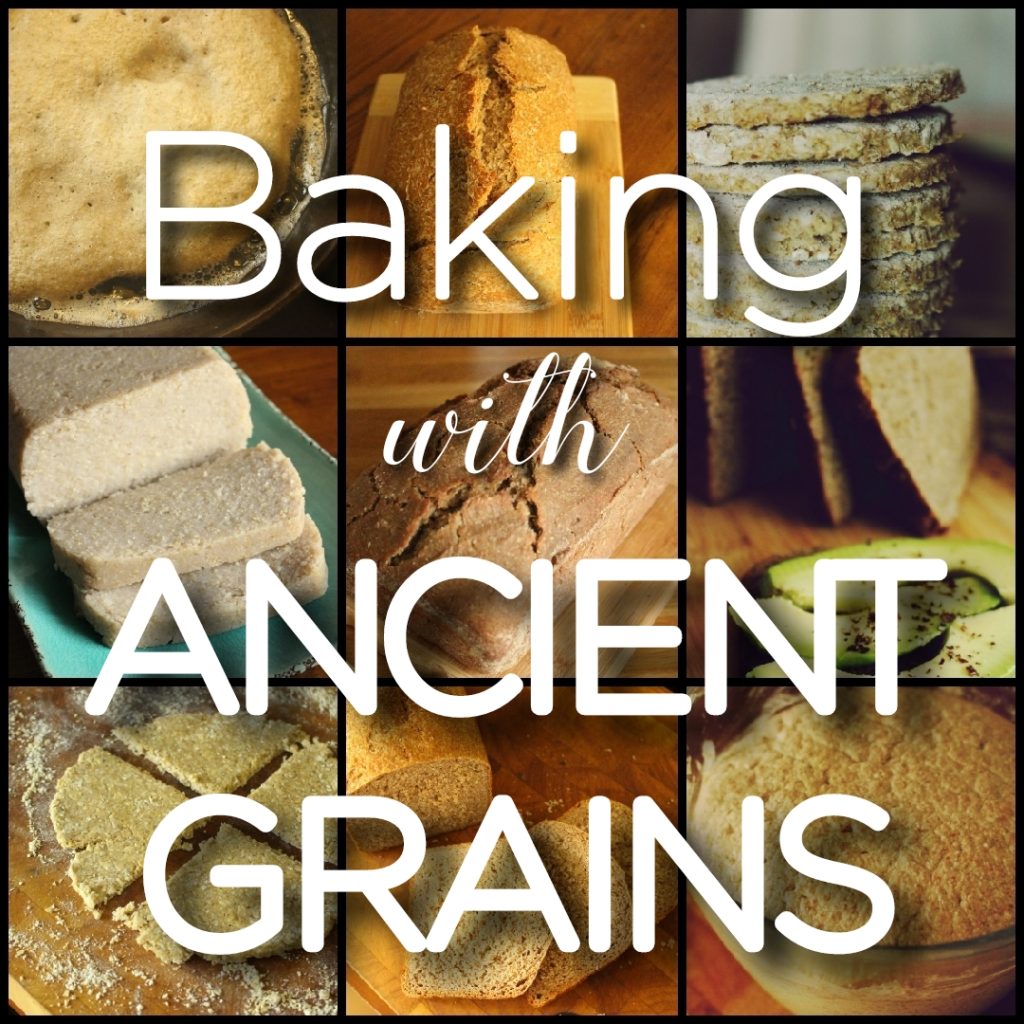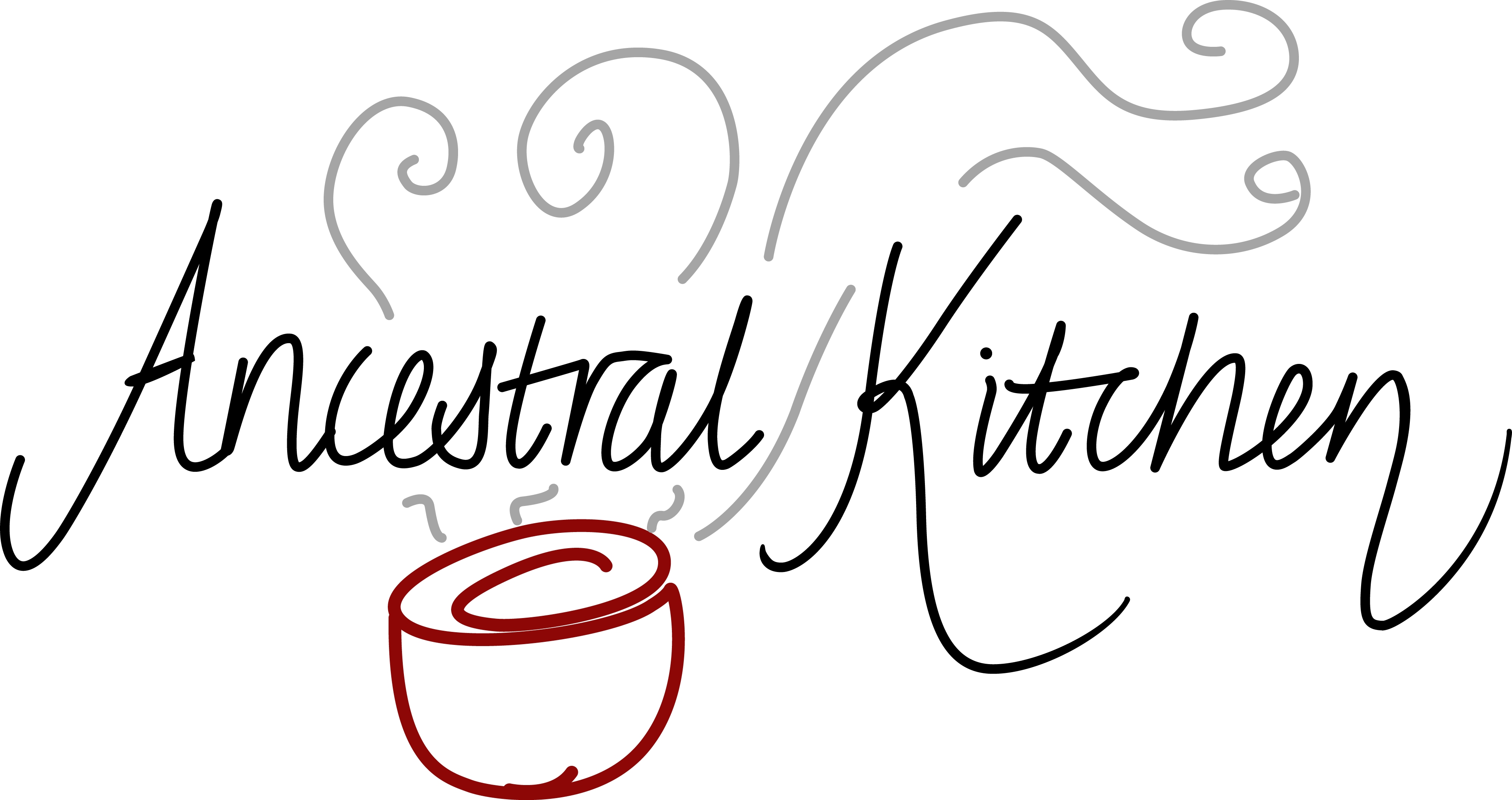Have you heard that you should be ‘eating more protein’, but not had the time to figure out how much more or how exactly to get more protein into your meals, especially that all-important breakfast?
This article will explain protein recommendations, what that looks like on your plate and give you 16 ideas for high protein breakfasts.
How much protein do I need?
The sources that I’ve read suggest that, as women, we need one gram of protein for every kilogram of our body weight. If we are very active, breastfeeding, insulin-resistant or peri-menopausal that figure goes up.
Let’s make that more tangible: I weigh 10 stone (140lbs/65kg), so that means I need 65g of protein a day which is 22g per meal.
How much protein is in food?
Here’s some information from Laura Bryden’s ‘The Hormone Repair Manual’:
In order to get 20g of protein, we need to eat:
- Red meat 77g (or 2.71oz)
- Chicken breast 87g (or 3.06oz)
- Almonds is 93g (or 3.28oz)
- Salmon 105g (or 3.70oz)
- Feta cheese 121g (or 4.26oz)
- Eggs 159g (or 5.60oz) c. three medium eggs
- Tofu 167g (or 5.89oz)
- Chickpeas 242g (or 8.53oz)
- Lentils 263g (or 9.27oz)
As you’ll notice, animal sources are generally higher in protein than plant sources. In addition, animal sources are more likely to be ‘complete’ proteins (i.e. include all the essential amino acids – that is the amino acids that our bodies cannot generate themselves). There is certainly a place for plant proteins – but in order to prioritise protein per mouthful, I look to animal sources first.
Why high protein for breakfast?
Protein at breakfast is so beneficial. It regulates our circadian rhythms therefore helps us sleep better, it aids with sugar processing by sensitising our insulin production and it fires up metabolism. In addition, it fills us up, meaning we’re less likely to run out of energy or be hungry during the morning.
How can I eat a high protein breakfast?
If you want to eat a high-protein breakfast make these key ingredients central to the first meal of your day:
Broth
Beef bone broth has 10g of protein per cup/250ml and is so easy to drink or work into other dishes.
Dairy
1 cup/250ml of milk or milk kefir has over 8g of protein, and it is easy to blend into smoothies or simply to drink. Cheese is even higher in protein with just 28g/1oz of cheddar having 7.6g of protein, 28g/1oz of Parmesan having 9.2g of protein and half a cup of cottage cheese having 13g of protein.
Collagen powder
The two problems I hear from people about breakfast are:
1 – I don’t have the time to make a meal early in the morning, and
2 – I just can’t eat that much early in the day
Both of these often apply to me! Collagen powder has 20g of protein per two scoops and is so easy to mix into virtually any breakfast or breakfast drink.
Collagen powder may seem more costly than other protein options at first sight, but when I sat down and worked out how much each of my proteins cost per gram, I realised it was actually cheaper than all my other sources.
As it’s not an unprocessed food, I pay attention to how I source collagen (just as I pay attention to where I get meat and dairy from). Many manufacturers state the animals are grass fed but do not give any more details on their provenance and, as a recent article by Tara Couture revealed, hormone-treated animal hides are used for collagen powder. Check your supplier to ensure what you are buying aligns with your standards.
Eggs
Eggs are one of the ultimate healthy fast foods, hence very useful for breakfast protein. One medium egg has 6 to 7g of protein.
Meat
Having meat for breakfast may need a psychological shift, but it’s a great way to get protein without much bulk. Beef can be prioritised over pork and chicken because it is higher in protein.
Oats
This one may surprise you! Oats have one of the highest protein levels of any grain. The ones I source have 16g of protein per hundred grams, which puts them on a par with many cheeses. Being a plant protein, they do not have the full spectrum of amino acids, but they are higher in the essential amino acids than many other cereals.
Now let’s get to how to combine these ingredients:
16 High Protein Breakfast Ideas:
Below you’ll find a long list of breakfast ideas that’ll get you to 20g of protein before lunch. I’ve focused in on the protein, not including reference to fruit and vegetables – do add these to the dishes based on what you fancy and what you have digestive room for!

1/ Cook grains in broth and add a high protein extra. You can do this freshly, or use broth to reheat previously-cooked grains. Click here to access my recipe for breakfast bone broth bowl, which explains my process. You could try one of my favourite takes on this: cooking 55g (2oz) (dry weight) of grains in a cup of broth, mixing in a teaspoon of miso and then poaching an egg in it – it’ll give you a breakfast with around 24g of protein.
2/ Poaching two eggs in a cup of broth will give you over 20g of protein.
3/ Have a cup of broth with sourdough bread and 50g (scant 2oz) of cheese. If you’re having something like cheddar, you’re looking at 25g of protein.
4/ Drink a cup of broth immediately on waking, giving 10g of protein before you’ve even got to your breakfast!
5/ Stir collagen powder into bone broth for the ultimate highprotein drink. Two scoops of collagen powder plus a cup of broth will give you 30g protein.
6/ Two boiled eggs eaten with a small square of cheese will get you over 20g of protein. Soft-boiled eggs cook in a few minutes; hard-boiled eggs can be cooked in bulk and stored in the fridge.
7/ If I want to eat more eggs, I find scrambling them easier. I can often eat three scrambled eggs (remember one egg will give you 6-7g of protein), when I couldn’t manage that many boiled. You can also add left over meat scraps or some flaked fish into the saucepan whilst cooking for higher protein content.
8/ Omelettes are quick, easy and another way to eat multiple eggs. A three-egg omelette with 28g (1oz) of grated cheddar in the middle will give you around 25g of protein.
9/ ‘Special cheese on toast’ is one of the breakfasts my husband, Rob, often makes for me! Mix 50g (2oz) of grated cheddar-style cheese with a beaten egg and dollop it onto a large piece of sourdough bread before putting under the grill. This comes in at over 20g of protein.
10/ Beef patties or meatballs cooked in advance and frozen can be taken out of the freezer before bed to provide a high protein breakfast. In my house a beef patty usually weighs just under 100g (c. 4oz), so I know I’m getting 25g of protein from just one.
11/ Sausages are another good option. A 75g Italian-style sausage will have 13.6g of protein in. One of these with a fried egg or a cup of broth (or both!) makes a great breakfast.
12/ A small portion of oats cooked with a cup of milk will bring you close to 20g of protein (you can previously soak the oats in minimal water to ferment if you like, see my instructions here). If you add an egg to the saucepan a couple of minutes before you serve, you get to around 23g of protein.
13/ Collagen can be stirred into oats so easily. Sourdough porridge plus two scoops of collagen powder will give you almost 30g of protein. Adding some nuts and/or seeds will boost protein and give you more texture. If you prefer a sweet breakfast, this is a good option for you.

14/ Savoury oats are amazing! Cook your oats in a cup of broth and you’ll have almost 20g of protein. To up the protein more, add in an egg just before they’re done or sprinkle some cheese on top of them.
15/ Stir collagen into whatever you are drinking or eating – your coffee, your orange juice, your yoghurt, your grains cooked in broth. On days that are super busy this is such a great fall-back.
16/ Smoothies: using milk or milk kefir as a base for a high-protein smoothie is quick and delicious. A cup and a half of milk plus a raw egg and a spoonful of flax seed and you’re at 20g of protein. Adding collagen, perhaps just half a scoop, can up this further.
I hope this helps give you some high protein breakfast ideas! Each of the suggestions above is open-ended and can be a springboard for new combinations – let me know your own ideas below, by email or on Instagram.
And importantly – don’t stress about your breakfasts! Being the healthiest we can is so much more than a counting game and is achieved by our consistent daily choices (which must be achievable to be repeatable!). Eat what you enjoy, and can manage. Be gentle with yourself.
If you enjoyed this article, you’d like the other ancestral food content I send out bi-weekly in my newsletter – you can get on my mailing list here!
You may also enjoy:
My 5 Favourite Ways To Use Bone Broth
Collagen and Gelatin Made Simple

Bring ancient grain baking into your kitchen!
Download my free 30-page guide with five healthy and tasty 100% ancient grains recipes.


Dear Alison,
As I live near to you, could you tell me which collagen powder you use (or think best ? ) and how/where you buy it from.
Thankyou
From
Rebecca
It’s been hard to source collagen powder I’m happy with here. I always used to get Great Lakes in the UK, but it is crazily-priced here. The only reasonably-priced powders I’ve found are on amazon. At the moment I’m buying one from Ireland, a company called Igennus Healthcare. I have seen you can get Great Lakes on codliveroilshop.eu but not yet compared prices. I hope this helps!
I find the Great Lakes directly on their website for much better price. I found that Anything you can find on Amazon which I banned can be found elsewhere. Hope that helps
How do I make sourdough portage ?
Hi Wendy,
You can find a video here: https://ancestralkitchen.com/sourdough-porridge-series/